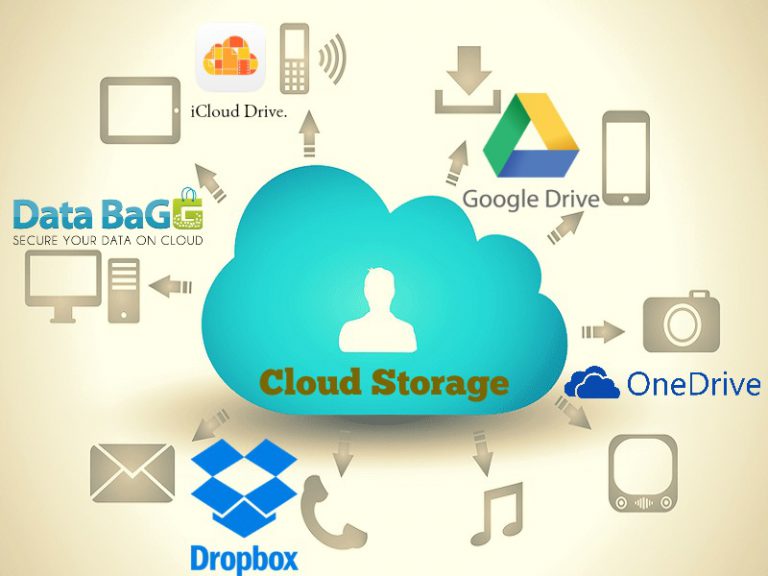Cloud storage services have emerged as a transformative solution in the digital landscape, offering unparalleled convenience, scalability, and cost-effectiveness for data storage and management. By leveraging the vast capabilities of the cloud, businesses and individuals alike can harness the power of secure, accessible, and flexible storage solutions.
Cloud storage services provide a comprehensive suite of features and benefits, catering to diverse data storage needs. From object storage to block storage, these services cater to specific data types and workloads, ensuring optimal performance and cost efficiency. Moreover, cloud storage providers implement robust security measures and comply with industry regulations, guaranteeing the confidentiality and integrity of stored data.
Cloud Storage Services

Cloud storage services offer a convenient and scalable way to store and access data over the internet. They eliminate the need for physical storage devices and provide users with a centralized platform to manage their files from anywhere with an internet connection.
Key characteristics of cloud storage services include:
- Remote access: Files can be accessed from any device with an internet connection, making it easy to collaborate and share data.
- Scalability: Cloud storage services can be scaled up or down as needed, allowing users to adjust their storage capacity based on their requirements.
- Reliability: Replicated data storage across multiple servers ensures high availability and data protection.
- Cost-effectiveness: Cloud storage services often offer pay-as-you-go pricing models, which can be more cost-effective than purchasing and maintaining physical storage devices.
Benefits of Using Cloud Storage Services
- Increased accessibility and collaboration: Cloud storage services enable teams to access and share files remotely, improving collaboration and productivity.
- Reduced costs: Eliminating the need for physical storage devices and IT infrastructure can significantly reduce hardware and maintenance costs.
- Enhanced security: Cloud storage providers implement robust security measures to protect data from unauthorized access and breaches.
- Disaster recovery: Cloud storage services provide a reliable backup solution, ensuring data is protected in the event of hardware failures or natural disasters.
Challenges of Using Cloud Storage Services
- Security concerns: While cloud storage providers implement security measures, it’s important for users to understand the potential risks and take appropriate precautions.
- Internet dependency: Accessing cloud storage requires a reliable internet connection, which may not always be available.
- Vendor lock-in: Once data is stored in a cloud storage service, it can be challenging to migrate to another provider due to compatibility issues.
- Privacy concerns: Users should be aware of the privacy policies of cloud storage providers and the potential implications of storing sensitive data in the cloud.
Popular Cloud Storage Providers, Cloud storage services
Some of the most popular cloud storage providers include:
- Amazon Web Services (AWS) S3
- Microsoft Azure Blob Storage
- Google Cloud Storage
- Dropbox
- Box
Types of Cloud Storage Services

Cloud storage services can be broadly classified into three main types: object storage, block storage, and file storage. Each type has its own advantages and disadvantages, and the choice of which type to use depends on the specific requirements of the application.
- Object storageis a type of cloud storage that stores data as immutable objects. Objects are typically identified by a unique key, and can be accessed via a RESTful API. Object storage is often used for storing large amounts of unstructured data, such as images, videos, and backups.
- Block storageis a type of cloud storage that stores data in fixed-size blocks. Blocks are typically 512 bytes in size, and can be accessed via a block storage API. Block storage is often used for storing data that needs to be accessed in a predictable manner, such as databases and virtual machine disks.
- File storageis a type of cloud storage that stores data in a hierarchical file system. Files can be accessed via a file system API, and can be organized into directories and subdirectories. File storage is often used for storing data that needs to be accessed in a flexible manner, such as documents and spreadsheets.
The following table compares the features of the different cloud storage types:| Feature | Object Storage | Block Storage | File Storage ||—|—|—|—|| Data model | Immutable objects | Fixed-size blocks | Hierarchical file system || Access API | RESTful API | Block storage API | File system API || Use cases | Large amounts of unstructured data | Data that needs to be accessed in a predictable manner | Data that needs to be accessed in a flexible manner |
Security and Compliance
Cloud storage providers implement robust security measures to protect data from unauthorized access, breaches, and cyber threats. These measures include:
- Encryption at rest and in transit
- Multi-factor authentication
- Access control and role-based permissions
- Intrusion detection and prevention systems
- Regular security audits and penetration testing
Moreover, cloud storage services comply with industry regulations and standards, such as:
-
- ISO 27001/27002: Information security management
- GDPR: General Data Protection Regulation (EU)
- HIPAA: Health Insurance Portability and Accountability Act (US)
li>PCI DSS: Payment Card Industry Data Security Standard
Tips for Enhancing Security
Organizations can enhance the security of their cloud-stored data by:
- Implementing strong encryption policies
- Enforcing strict access controls
- Regularly monitoring and auditing cloud storage activity
- Educating employees on cloud security best practices
- Backing up data regularly to a separate location
Pricing and Cost Optimization
Cloud storage providers typically offer a variety of pricing models to cater to different customer needs and usage patterns. Common pricing models include:
- Pay-as-you-go:Customers are charged based on the amount of storage used and the number of operations performed.
- Tiered pricing:Customers are charged based on the amount of storage used, with different tiers offering different pricing rates.
- Flat-rate pricing:Customers are charged a fixed monthly fee for a specified amount of storage.
To optimize cloud storage costs, customers can employ the following strategies:
- Use the right storage class:Cloud providers offer different storage classes with varying performance and cost characteristics. Customers should choose the storage class that best fits their performance and cost requirements.
- Archive infrequently accessed data:Data that is rarely accessed can be archived to lower-cost storage classes.
- Use data compression:Compressing data before storing it can reduce storage costs.
- Negotiate with providers:Customers can negotiate with cloud providers for discounts and customized pricing plans.
The following table compares the pricing plans of different cloud storage providers:
| Provider | Pricing Model | Cost per GB |
|---|---|---|
| AWS S3 | Pay-as-you-go | $0.023 per GB |
| Google Cloud Storage | Tiered pricing | $0.01-$0.10 per GB |
| Microsoft Azure Storage | Pay-as-you-go | $0.022 per GB |
Integration and Interoperability
Cloud storage services offer seamless integration with a wide range of applications and systems, allowing businesses to leverage their existing infrastructure and streamline their workflows.
Interoperability between cloud storage providers is crucial for seamless data exchange and collaboration across different platforms. It ensures that data can be easily accessed, transferred, and processed, regardless of the underlying storage provider.
Examples of Successful Cloud Storage Integrations
- Integration with productivity tools:Cloud storage services integrate with popular productivity suites like Microsoft Office 365 and Google Workspace, allowing users to store, share, and collaborate on files directly from within these applications.
- Integration with data analytics platforms:Cloud storage services can be integrated with data analytics platforms like Tableau and Power BI, enabling businesses to analyze data stored in the cloud and gain valuable insights.
- Integration with e-commerce platforms:Cloud storage services provide a scalable and cost-effective solution for storing and managing product images, videos, and other media content for e-commerce businesses.
Emerging Trends and Innovations
The cloud storage industry is constantly evolving, with new trends and innovations emerging all the time. These advancements are shaping the future of cloud storage, making it more efficient, secure, and cost-effective than ever before.
One of the most significant trends in the cloud storage industry is the rise of object storage. Object storage is a type of cloud storage that stores data as objects, rather than files. This makes it ideal for storing large amounts of unstructured data, such as images, videos, and audio files.
Object storage is also more scalable and cost-effective than traditional file storage.
Another emerging trend in the cloud storage industry is the use of artificial intelligence (AI). AI can be used to automate many of the tasks associated with cloud storage, such as data management, security, and compliance. This can help to reduce costs and improve efficiency.
In addition to these trends, there are a number of other innovative technologies and solutions that are shaping the future of cloud storage. These include:
- Serverless storage:Serverless storage is a type of cloud storage that does not require you to manage any servers. This makes it ideal for applications that need to store data but do not want to deal with the hassle of managing infrastructure.
- Edge storage:Edge storage is a type of cloud storage that is located at the edge of the network, closer to the devices that are generating data. This can help to reduce latency and improve performance for applications that need to access data quickly.
- Multi-cloud storage:Multi-cloud storage is a strategy of using multiple cloud storage providers. This can help to reduce risk, improve performance, and lower costs.
These are just a few of the emerging trends and innovations that are shaping the future of cloud storage. As these technologies continue to develop, we can expect to see even more innovative and groundbreaking solutions that will make cloud storage even more essential for businesses of all sizes.
Companies Leading the Way
A number of companies and organizations are leading the way in the development of innovative cloud storage technologies and solutions. These include:
- Amazon Web Services (AWS):AWS is the leading provider of cloud storage services, offering a wide range of object storage, file storage, and block storage options.
- Microsoft Azure:Azure is Microsoft’s cloud platform, which offers a variety of cloud storage services, including Azure Blob Storage, Azure Files, and Azure Disk Storage.
- Google Cloud Platform (GCP):GCP is Google’s cloud platform, which offers a variety of cloud storage services, including Google Cloud Storage, Google Cloud Filestore, and Google Cloud Persistent Disk.
- IBM Cloud:IBM Cloud offers a variety of cloud storage services, including IBM Cloud Object Storage, IBM Cloud File Storage, and IBM Cloud Block Storage.
- Oracle Cloud Infrastructure (OCI):OCI offers a variety of cloud storage services, including Oracle Cloud Object Storage, Oracle Cloud File Storage, and Oracle Cloud Block Storage.
These companies are constantly investing in research and development to develop new and innovative cloud storage technologies and solutions. As a result, we can expect to see even more groundbreaking advancements in the years to come.
Final Review: Cloud Storage Services
As the cloud storage industry continues to evolve, emerging trends and innovations are shaping the future of data storage. Innovative technologies, such as artificial intelligence and machine learning, are enhancing data management capabilities, enabling automated data classification, intelligent data retrieval, and predictive analytics.
By embracing cloud storage services, businesses and individuals can unlock a world of possibilities, empowering them to harness the full potential of their data and drive innovation.
Originally posted 2024-05-17 17:35:18.
 Bussines News Daily
Bussines News Daily



